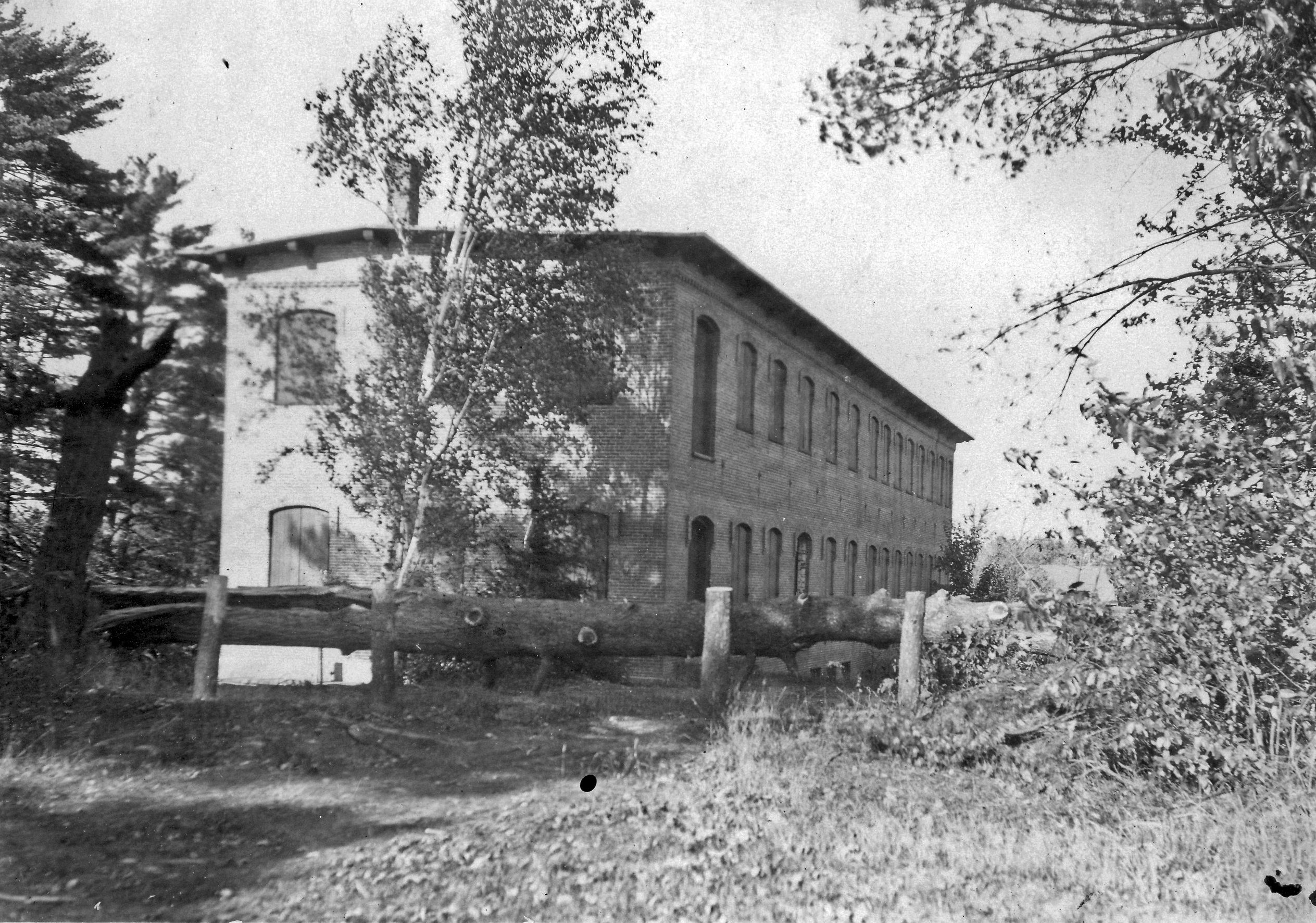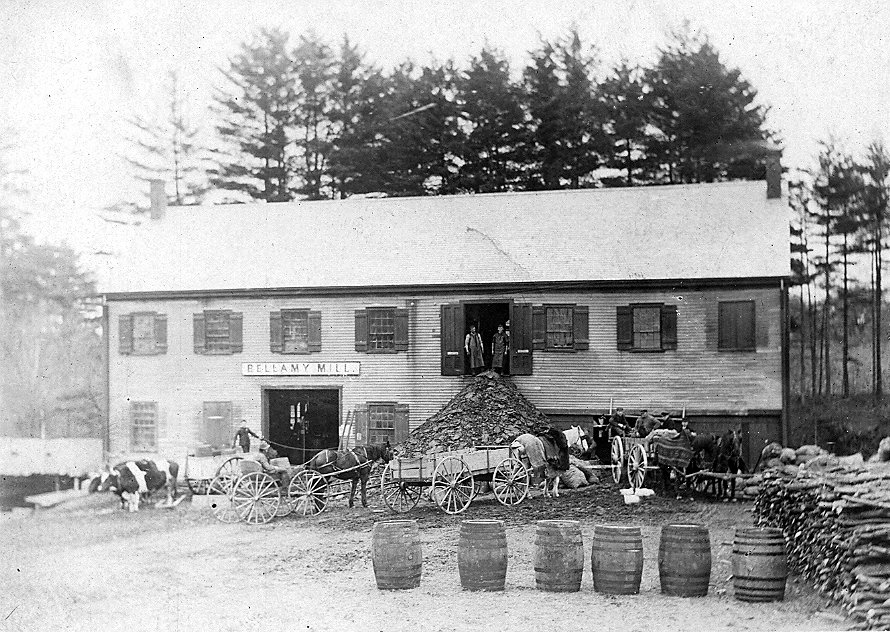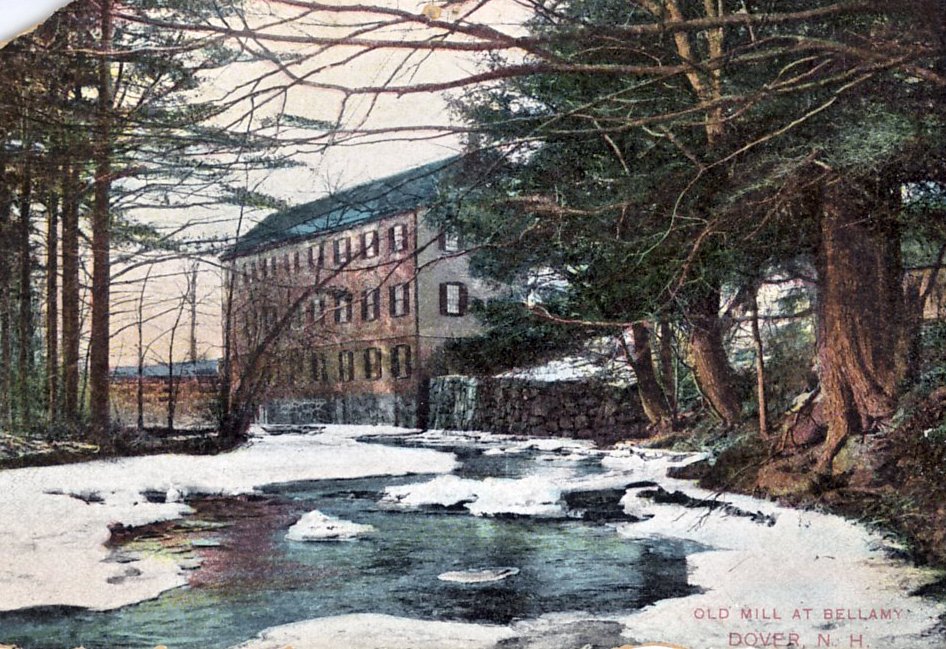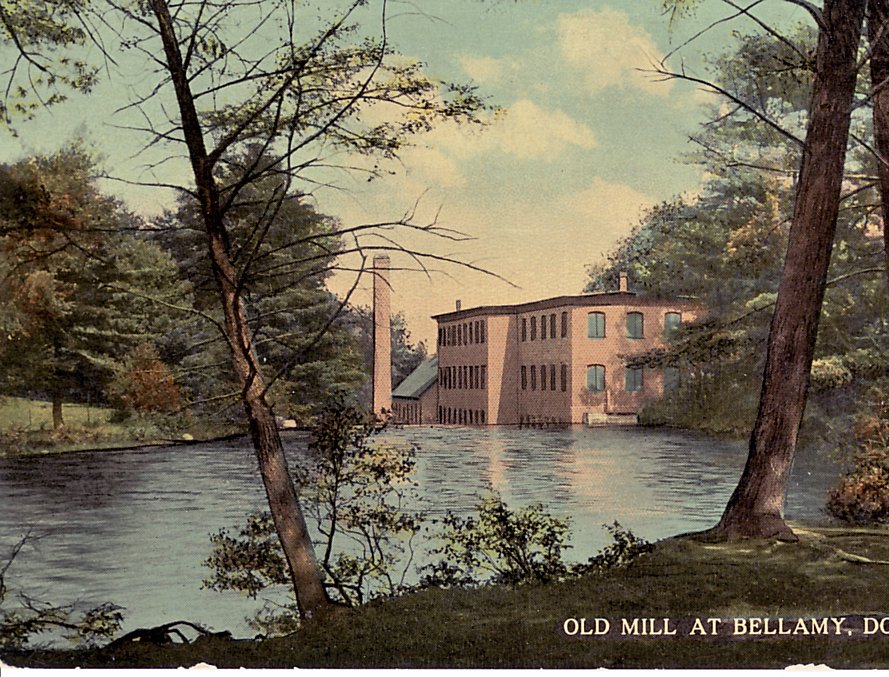Disclaimer
The Dover Public Library website offers public access to a wide range of information, including historical materials that are products of their particular times, and may contain values, language or stereotypes that would now be deemed insensitive, inappropriate or factually inaccurate. However, these records reflect the shared attitudes and values of the community from which they were collected and thus constitute an important social record.
The materials contained in the collection do not represent the opinions of the City of Dover, or the Dover Public Library.
Mill on the Bellamy River

The many falls of the Bellamy River were seen as great resources of water power to run mill machinery. As early as 1650, sawmills and gristmills existed here, and over the next 3 centuries dozens of small industries thrived in these waters. The types of factories included an iron foundry, flannel, cotton, and woolen mills, cloth dressing and carding mills, yarn manufacturing, nail and knife factories, a machinery shop, a brewery, a hosiery factory and a sewing machine manufacturer, a bone grinding mill, a shuttle and axe handle factory, color shops and bleacheries, a railroad box car factory, sash, blind, and door manufacturers, clapboard mills, a shingle, cob, and lathe maker, and a cider mill. During their heyday in the 1840’s, the yarn and cloth manufacturers would pay women workers 50 cents a week plus board for producing 40-60 skeins, or $1.00 for weaving 30-50 yards of fabric at home in a hand loom.
From the 1988 Heritage Walking Tour Booklet



This historical essay is provided free to all readers as an educational service. It may not be reproduced on any website, list, bulletin board, or in print without the permission of the Dover Public Library. Links to the Dover Public Library homepage or a specific article's URL are permissible.
